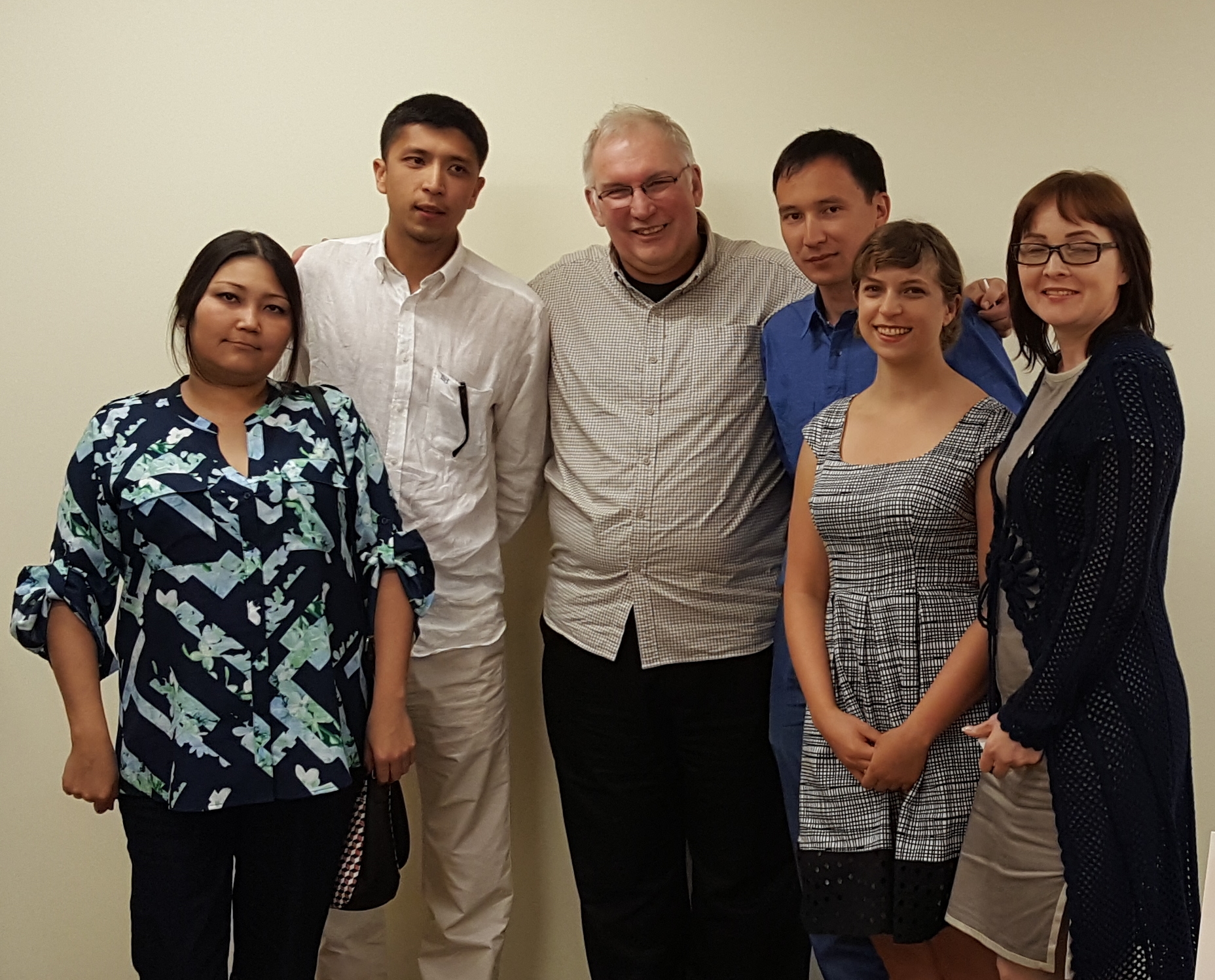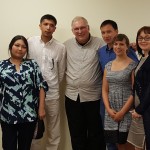
By Alice Ollstein
How do you distinguish between trustworthy news and propaganda? Is it ethical to accept gifts from a source? How can we keep publishing serious stories when our readers and editors are demanding clickbait?

These were some of the many questions tackled in a cross-cultural discussion in early June between SPJ members in DC and a team of four journalists from Kazakhstan who came to the U.S. on a study tour organized by the State Department. Dan Kubiske, the co-chair of the SPJ’s International Committee, and newly elected local board member Alice Ollstein represented the SPJ at the meeting.
The four Kazakh reporters, who work for various print, radio, TV and digital outlets, offered a window into their lives, including their experiences with government censorship.
“We have to use code words,” explained one. “For example, if the value of the currency is falling, we call it a ‘correction.’”
Another added she routinely gets angry calls from government officials who sometimes demand a critical story be taken down or a photo changed to one that’s more flattering. “”But at least we can post a critical report, and it will be up for a few hours before we are forced to take it down.”
Kazakhstan ranks poorly on press freedom indices by Freedom House and Reporters Without Borders. Journalists can be jailed or heavily fined for “defaming” the president or other elected officials, and dozens of reporters were charged in the last year alone. This has created an environment where outlets self-censor out of fear of legal retribution.
Kubiske told the Kazakh just about the only time reporters in the United States go to jail is to protect an anonymous source. Ollstein added denial of access is also a major problem reporters have covering the government.
Over all, the meeting focused ethical, economic, and organizational challenges that are universal to reporters in every country, from the allure of easy clickbait to the difference between the appearance of a conflict of interest and the genuine article. While the discussion revealed that what might be an ethical and normal practice in one country could be verboten in another, fairness and accuracy are valued across national borders.
Meetings such as these give U.S. journalists better insight into under-covered parts of the world and help dispel stereotypes about the U.S. and its press corp. In addition, they can foster invaluable connections and help build a strong international community of journalists all struggling for free and independent media.
